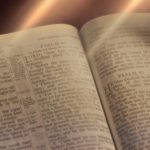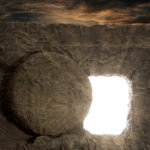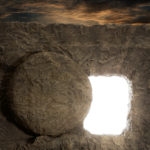THE SHEPHERD’S STAFF
May 26th, 2015
To the readers of The Shepherd’s Staff:
I would like to thank each of you for your kind (and patient) interest in our ministry’s newest venture: online publishing.
Years ago I was given a wonderful opportunity to receive a Biblical / theological education at a very fine seminary. And to this day, I continue to personally benefit from that training. But attached to that great privilege is a great responsibility: a calling to prepare both unbelievers and believers for eternity. Most surely, this Great Commission is focused upon the Living Word of God, Jesus Christ, as revealed in the written Word of God. It is a stewardship I do not take lightly.
You and I live in a very unique time. The Church of the 21st century is able to offer and explain the Scriptures to the world with unimaginable speed. One way to do so is by means of a “blog.” To be honest, blogging is a brand new trick for this old dog. In fact, I had to look up the word. When one writes a blog, he is using the internet to write a journal. He is using the “world-wide web” (www.) to “log.” Hence, a blog is a “world-wide web-log.” It is an electronic journal … able to encircle the globe … in a matter of seconds. The 1st century authors of the New Testament letters would have been astounded at its potential.
This blog site, The Shepherd’s Staff, has a specific purpose:
“To nurture Christ’s Church with the Truth of God’s Word”
It is an honor for me to be a part of this quest for His Truth with you.
Starting next week, I intend to post one blog every two weeks. The first series of blogs will be taken from our course, The God of Our Lives, a study of the character and works of God. (This course is published in its entirety on our “Main Site,” www.stewardoftruth.com.) If you would like to be notified of these (usually brief) articles, please send your email address to martinpuryear.author@gmail.com. Your email address will never be sold, rented or shared with anyone else.
And now I need to remind us all of a sobering reality, one that has placed our home on high alert. To write about God to a world-wide audience is to place one’s neck on a thousand chopping blocks. The fact is, the Bible is an affront to the world’s value system. And when God’s Truth confronts the world’s lies, it is striking at the jugular of spiritual darkness. As this blog site remains true to the Scriptures (which is our prayer), it will not go unnoticed by those who love that darkness. Nor will it be tolerated by them. Even when offered in love and with grace, the Light of God will be rejected – often vehemently – by those who hate the God of Light.
Father, I (Jesus) have given (My disciples) Your Word; and the world has hated them, because they are not of the world, even as I am not of the world. I do not ask You to take them out of the world, but to keep them from the evil one. (John 17:14-15)
That warning will play itself out in this ministry. Anyone who teaches the Word of God should expect opposition. It is a resistance that can – and often will – grow hostile. (Consider the Crucifixion.) Nevertheless, by God’s help, these blogs will be backed by the authority of God’s Word … motivated by God’s love … generated by God’s power … in accordance with God’s wisdom. I trust that it will be a fruitful work, all to the honor of His reputation.
Carol and I would appreciate very much that you pray for us: that we would remain faithful to our Lord in times of both peace and adversity.
We also ask that you would please pray for these writings: that the Master-Teacher would guide the choice of each word. His answers to your prayers will ensure that the materials are accurate … and simple … and clear … and rich … and powerful … and relevant.
Pray for us that the Word of the Lord will spread rapidly and be glorified … and that we will be rescued from perverse and evil men; for not all have faith. But the Lord is faithful, and He will strengthen and protect you from the evil one. We have confidence in the Lord concerning you, that you are doing and will continue to do what (He) commands. May the Lord direct your hearts into the love of God and into the steadfastness of Christ. (2nd Thessalonians 3:1-5)
Standing – by God’s grace – in the strength of Christ Jesus,
Martin

























